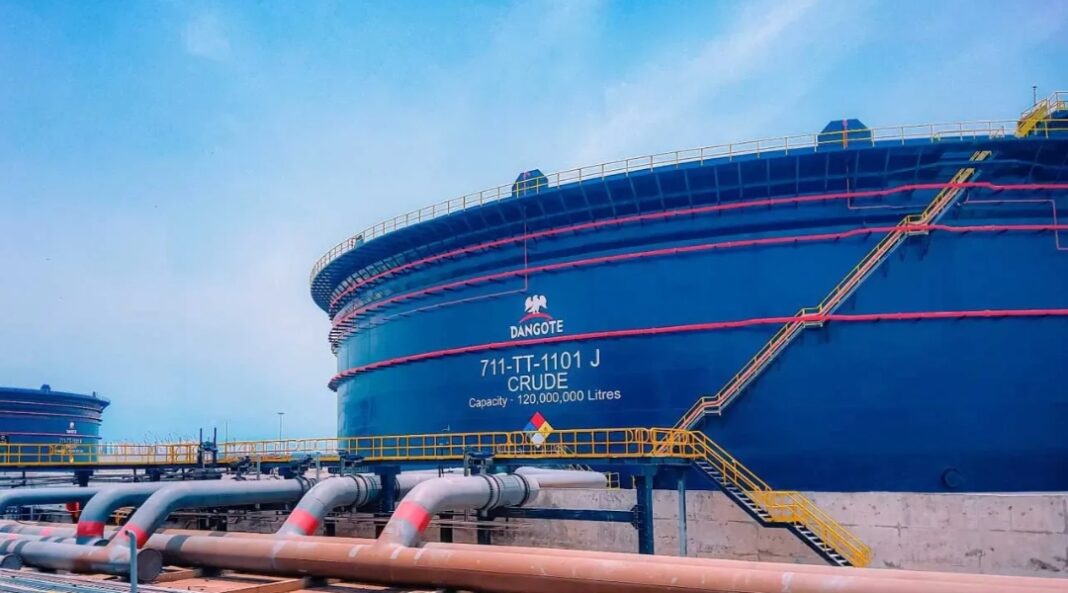In a bold move poised to reshape Africa’s energy landscape, Nigerian billionaire and industrialist Aliko Dangote has announced plans to expand the Dangote Refinery’s capacity from 650,000 barrels per day (bpd) to 1.4 million bpd, more than doubling its output. The expansion aims to strengthen Nigeria’s refining capability, reduce fuel imports, and enhance the country’s influence in the global petroleum market.
The announcement comes less than two years after the refinery began operations, positioning itself as Africa’s largest and most sophisticated refining complex. Located in the Lekki Free Trade Zone near Lagos, the refinery currently processes crude into gasoline, diesel, aviation fuel, and other refined products for both domestic consumption and export.
An Ambitious Expansion with Continental Implications
According to Dangote, the decision to expand follows overwhelming demand for refined petroleum products across Africa, especially in West and Central Africa where reliance on imports remains high. The refinery has already begun shipping refined fuel to neighbouring countries, helping to address chronic shortages and reduce dependence on European suppliers.
“This expansion reflects our confidence in Africa’s industrial future,” Dangote said in a statement. “We are demonstrating that large-scale, world-class projects can thrive on the continent : built by Africans, for Africans.”
Energy analysts say the refinery’s increased output could transform Nigeria from a net importer to a net exporter of refined petroleum, a goal that has eluded the country for decades despite being Africa’s top crude oil producer. The new capacity could allow Nigeria to export over 700,000 barrels of refined products daily, significantly improving its trade balance and foreign exchange earnings.
Economic and Strategic Impact
The refinery’s expansion is expected to generate thousands of direct and indirect jobs, while spurring growth in ancillary sectors such as logistics, engineering, and chemical production. Moreover, it could stabilise domestic fuel prices, which have fluctuated due to global oil market volatility and currency weakness.
However, critics argue that the Nigerian government’s heavy reliance on private initiatives for such large infrastructure projects exposes the weakness of its public sector investment capacity. Some have called for greater transparency in licensing, pricing, and foreign exchange management to ensure that the benefits of the refinery are evenly distributed.
Economist Tayo Bello noted that while the refinery represents industrial progress, “Nigeria must ensure that the regulatory environment supports competition and prevents monopolistic dominance in the downstream sector.”
Regional Energy Security and Policy Questions
The expansion comes amid renewed global focus on energy security and the shift toward renewable sources. While Africa continues to industrialise, many countries are still grappling with balancing fossil fuel dependency and environmental goals.
For the continent, the Dangote expansion raises strategic questions: Will this boost Africa’s self-sufficiency in energy, or deepen its reliance on hydrocarbon exports? Environmental advocates have also urged the company to invest in cleaner refining technology and carbon mitigation to align with global sustainability standards.
The Nigerian National Petroleum Company (NNPC), which owns a minority stake in the refinery, welcomed the expansion as a “historic step” toward achieving national energy independence. The government has also pledged to support infrastructural upgrades, including pipelines and port facilities, to ease crude supply to the refinery and product distribution nationwide.
Global Oil Market Dynamics
The expansion announcement comes at a time when global oil prices have stabilised following months of volatility due to geopolitical tensions and fluctuating demand from major economies. Analysts believe the Dangote Refinery’s full operation at 1.4 million bpd could reposition Nigeria as a key refining hub, potentially influencing regional pricing benchmarks.
In an era where many Western nations are transitioning away from fossil fuels, Africa’s growing refining capacity represents both an opportunity and a risk. If managed strategically, it could give the continent leverage in global energy negotiations. If mismanaged, it could expose economies to price shocks and policy missteps.
For now, Dangote’s vision reflects confidence in Africa’s industrial resilience and its capacity to lead in sectors once dominated by foreign interests. The expansion ( expected to be completed within three years ) could mark a turning point not just for Nigeria’s energy story, but for Africa’s economic self-determination as a whole.

